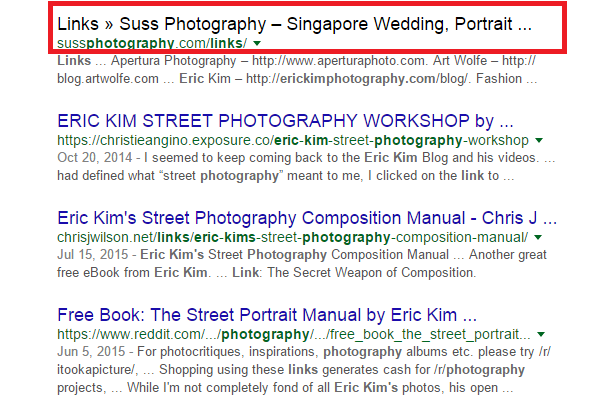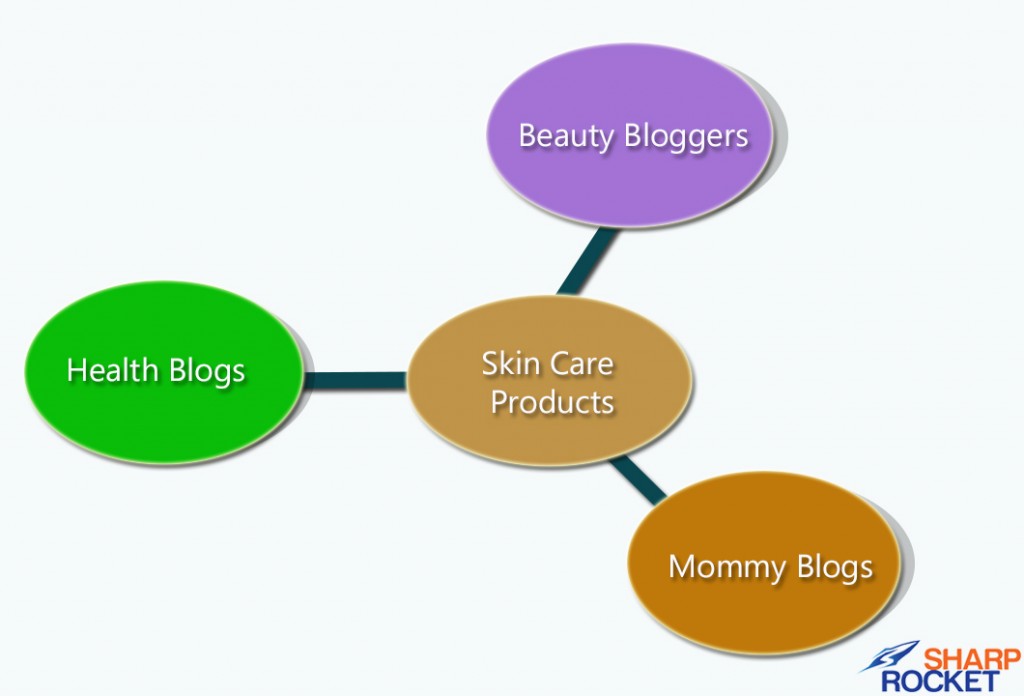by Venchito Tampon Jr | Last Updated on February 8, 2021

Link prospecting is not just some simple research you conduct to look for prospects. It is the initial and critical step in building links which involves creative ways to look for quality links that is relevant to your campaign. Just like what our CEO says:
Link prospecting is one of the critical and first initiatives in the link acquisition process. Every link building tactic always starts with finding links in a particular web place using free SEO tools and sorting those links in a spreadsheet based on the brand’s link standards.
– Venchito Tampon, CEO of SharpRocket
We need to find techniques that will help us garner prospects in a more convenient way. Blog research itself is already hard enough because of the thousands of ways to look for prospects.
Another way to find new link opportunities and not just by Google search results, is through competitor links.
Having a competitor, may it be content or direct competitor, is not always a bad thing. It may seem to be futile, yet we can get a lot from it especially in generating new keywords and finding link opportunities to add on your list. One way of using this is through the search operator “links:”.
![]()
Our team tried this Google command “links:” when we were looking for resource pages and we found websites that were later on listed as possible prospects. However, there are also disadvantages. In this article, we note the pros and cons of using the Google command “links:”
ADVANTAGES AND DISADVANTAGES OF USING THE SEARCH OPERATOR “LINKS”
PROS:
- Since your competitors are already linking to those websites, there is a great chance that the site or blog post is relevant to your industry.
- Websites shown in the search engine results page will give you other niches to tap as you visit them.
- Usage of “links:” operator is easy and convenient unlike when you are using backlink checker tools.
CONS:
- There is a chance that you can’t find a related topic connected to your industry to link from because your competitor already beat you to it.
- In checking for competitor links, you just tend to follow the blueprint instead of standing out. Being number one sometimes requires looking for other websites that are competitor-link-free!
- Not all websites linking to your competitor are based on their preference. There are times where a blogger links to another blogger or a company just because they know the person who owns it.
UTILIZING THE ADVANCED SEARCH OPERATOR “LINKS”
“Links:” search operator points out web pages that are linked to the domain you used. SERPs will, however, give you random results from its internal links and even web ranking review that’s why we have to be selective.
HOW TO USE GOOGLE COMMAND “LINKS:”
1. Target a specific competitor link you want to use. For example, you are looking for a resource page and saw erickimphotography.com as one of your competitors. Go to Google search box and key in the search operator + the domain name of the competitor. 
Note: Make sure that there is no space after the colon.
2. Choose a url in the search engine results page that you think can be a possible prospect.
 3. Use the “site:” command and type the keyword you are looking for, only if needed. In our example, we need not to use the search operator “site:” since we are looking for a resource page and sussphotography.com’s resource page already appeared on the SERP. Therefore, we can possibly link our website to this blog, too.
3. Use the “site:” command and type the keyword you are looking for, only if needed. In our example, we need not to use the search operator “site:” since we are looking for a resource page and sussphotography.com’s resource page already appeared on the SERP. Therefore, we can possibly link our website to this blog, too.
 We can also use competitor links in generating keywords and phrases for our Google queries. Visiting related blog posts on their websites can somehow give us fresh ideas.
We can also use competitor links in generating keywords and phrases for our Google queries. Visiting related blog posts on their websites can somehow give us fresh ideas.
THREE C’s TO REMEMBER IN CREATING KEYWORDS FOR LINK PROSPECTING
When we do research, we sometimes tend to write words based on how we formulated it in our mind and fail to simplify terms then find ourselves easily falling into the same thinking pattern. Before we jump to the tips link builders can apply to find new niches to tap or keywords to use, below are things to consider when typing in the keywords you will use for blog research:
1. CONCISENESS
We can use words that are short and to the point as a substitute for lengthy words without changing its meaning.
Wordy: Newly Developed or Most Common
Concise: Trending or Popular
2. CONCRETENESS
Choose words which form a sharp and clean meaning to eliminate confusion as to what you are really looking for.
General: My first Investment
Concrete: My First Car Investment (stocks, bonds,house,equipment, bags etc)
3. CLARITY
Choose precise, concrete and familiar words.
Familiar words: coupon
Pretentious Words: statement of due interest
UNLEASHING KEYWORD CREATIVITY
Lateral thinking is a technique that uses uncommon approach to solve problems or to stir up fresh ideas. Yes, being concise is one smart thing for us to generate keywords for our research. However, in developing link building tactics, one must dare to think outside the box to be able to come up with new niches to tap or keywords to use.

1. Who will benefit?
Ask yourself who would be interested in the products and services you or your client has to offer then list them down. We may review the possible prospects according to their age, gender, and needs. Think of other potential customer and reader. Let’s say you’re selling skincare products and you want to advertise these, you automatically look for beauty bloggers. Aside from the obvious people who might benefit in what you have to offer, try going beyond, like mommy blogs, health blogs, and senior blogs.

2. Who are the experts?
You may also consider people who are experts on your particular topic. In our example, we may choose to search for dermatologists and estheticians who specialize in skin care.

3. What are the problems encountered by niche?
There are times when you finally used up all the tricks up your sleeve and caught yourself at a loss for thinking new keywords to use. You can then try searching for the problems encountered by a certain niche. There are many terms or jargons associated with skin problems that only those knowledgeable in that field or those that already experienced it knows of.


Website: https://nationaleczema.org/eczema-products/glossary-skin-care-terms/
OTHER USEFUL RESOURCES:
- How to Speed Link Prospecting Through Observations
- How to Personalize Search Queries for Blog Prospecting
- Search Engine Queries for Link Builders and Marketers
EMBRACING COMPETITOR OPPORTUNITIES
Not all links will be counted with the Google link command. Some pages that will be displayed on SERPs are not all important or relevant to what you are looking for. Yet checking websites connected to your competitors will give you an idea of where to build your links. It will provide new ideas and broader networks to associate with. You just have to embrace every opportunity that comes your way to get links or new set of keywords to use, even if these are from your competitor.
The Author
Venchito Tampon Jr
Venchito Tampon is a Filipino Motivational Speaker, Corporate Trainer, and a Leadership Speaker in the Philippines. He is the CEO and Co-Founder of SharpRocket, a link building agency. With a decade of experience, Venchito has a proven track record of leading hundreds of successful SEO (link builidng) campaigns across competitive industries like finance, B2B, legal, and SaaS. His expert advice as a link building expert has been featured in renowned publications such as Semrush, Ahrefs, Huffington Post and Forbes. He is also an international SEO spoken and has delivered talks in SEO Zraz, Asia Pacific Affiliate Summit in Singapore, and Search Marketing Summit in Sydney, Australia. Check out his other businesses, Hills & Valleys Cafe, Blend N Sips and Saas Pursuit.
How our LINK BUILDING AGENCY builds 250 links/mo consistently using Predictable Link Building Methodology™…
- Using a SIMPLE and PROVEN system
- Using a SCALABLE strategy
- No private blog networks
- No creepy outreach emails
